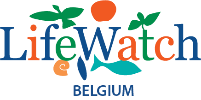You are here
News
News
Third meeting of the LifeWatch expert group
Added on 2014-06-25 11:03:58 by Dekeyzer, Stefanie
On Friday June 13th 2014, the expert group for the LifeWatch marine observatory and data archaeology met for the third time at the Flanders Marine Institute (VLIZ) in Ostend, Belgium.The LifeWatch expert group unites scientists from several universities and research institutes: the Flanders Marine Institute (VLIZ), the Research Institute for Nature and Forest (INBO), Ghent University (UGent), the Catholic University of Leuven (KU Leuven), the University of Hasselt (UHasselt), the Management Unit of the North Sea Mathematical Models (MUMM), the Institute for Agricultural and Fisheries Research (ILVO), the Flemish Institute for Technological Research (VITO), the Royal Netherlands Institute for Sea Research (NIOZ) and the University of Wageningen (the Netherlands).
The goal of the LifeWatch expert group is to:
During the discussion about the marine observatory, the main topic was the use of the data generated by the marine observatory. The first users of this data will be in the form of 4 PhD projects at Ghent University. It was also agreed that, since the LifeWatch infrastructure is generating a lot of new data and thus creates a lot of opportunities for the research community, VLIZ should organize some kind of data analysis workshops or hackathons to valorize these.
The goal of the LifeWatch expert group is to:
- Contribute to the construction of a marine observatory in the Belgian part of the North Sea, based on scientific data and expertise.
- Contribute to drawing up an inventory and priority list for the marine data archaeology.
- Contribute to obtain an unambiguous data policy for the data generated by the marine observatory and the data archaeology activities.
During the discussion about the marine observatory, the main topic was the use of the data generated by the marine observatory. The first users of this data will be in the form of 4 PhD projects at Ghent University. It was also agreed that, since the LifeWatch infrastructure is generating a lot of new data and thus creates a lot of opportunities for the research community, VLIZ should organize some kind of data analysis workshops or hackathons to valorize these.
[Overview] [Login]
